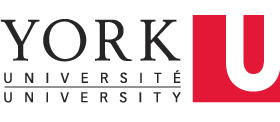Sub title: Urgent Social Needs to Ensure Continued Local Access to Food
There is a time-sensitive and critical need for locally-trained precision agricultural workers, to rapidly fill the void left by the over 60,000 foreign seasonal agricultural workers who fly to Canada every year to plant and harvest local crops. Today, with borders closed and travel restrictions due to the pandemic, those essential workers will not be available to Canadian farmers. Mary Robinson, president of the Canadian Federation of Agriculture and a PEI potato farmer, speaking on CBC radio on March 26, 2020 about the effect of the pandemic on farmers, said: “imported agricultural labour is absolutely necessary for Canadian food security at this time.”
Our proposed Local Agricultural Workers Training (LAWT) Program at York U would include precision training, developed in collaboration with sector-specific farming experts, to thereby quickly form a community-based trained work force that will meet the needs for local food supply. This training will include all basic skills to design, plant, maintain and harvest crops at the local level and practical knowledge of precision agriculture-related systems, such as solar photovoltaic systems and new electric farm vehicles such as tractors and ATVs, which we are developing with our partners Kinetic Solar, Silfab and Daymak.
We are also seeking access to larger tracts of lands in the Rouge Park in which we can replicate our converted shipping container models and scale-up operations. We aim at connecting our York U training facilities to agricultural lands in the Rouge Park using electric buses acquired from the Lion Electric Bus Company, which manufactures e-buses in Quebec. To do so, we are developing a secure mobility partnership with ParkBus, a versatile transportation company founded and headed by a York U graduate.
We also have an opportunity, which we are presently consolidating, to develop climate and health related collaborations with local Indigenous peoples and other diverse Canadian communities. Through our partnership with The Global Institute for Conscious Economics (GICE), we are exploring new economic and business solutions to support the mental and physical wellbeing of our current and future labour force, while also studying new business solutions that promote the green economy. GICE will allow us to engage global thought leaders, executives and entrepreneurs, youth and policy makers in our various initiatives with the goal of positioning Canada as a global leader in new economy infrastructure post COVID-19.
We are also proposing that all the steps involved in the development of the CSP be carefully documented through film and then be extensively posted and distributed online. This approach will enable any concerned organizations, researchers, students and citizens to experience (first online and once is safe, in person) our cutting-edge research, art, inspirational displays and training opportunities.
